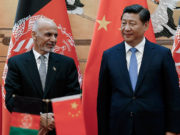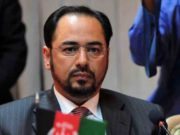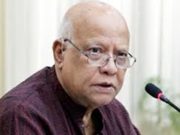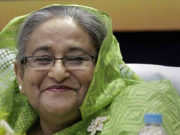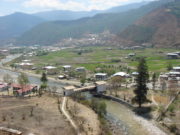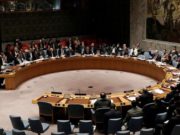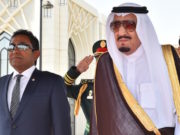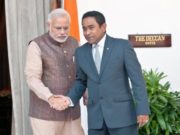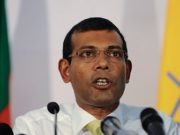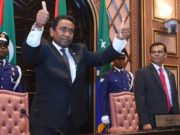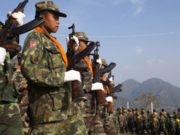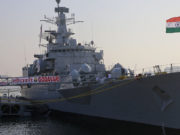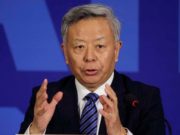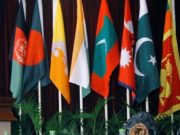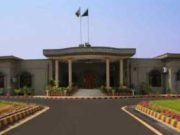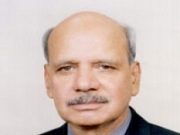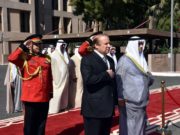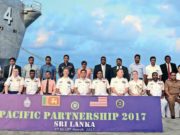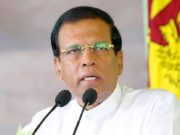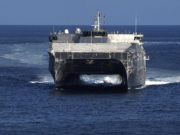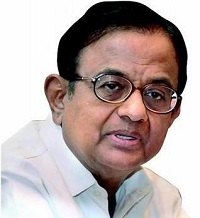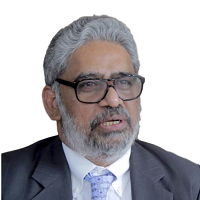(Exclusive): Over the past few months, particularly in the post-sanctions era, Iran has emerged as one of the biggest suppliers of oil to India, behind only Saudi Arabia and Iraq. Selling about 19.8 million tonne crude oil to India in the current fiscal year, Iran overtook Venezuela, Nigeria and UAE to become India’s third largest supplier in April-December period of 2016-17. On its part, India went on to repay $6 billion of its debts to Iran in November 2016, thus signifying the importance the former attaches to the latter in the overall matrix of Indian Prime Minister Moodi’s “Link West” policy, a policy that aims at fundamentally re-positioning India in west Asia by redefining the geography of trade.
Notwithstanding the importance of the Chabahar port agreement and recently signed other trade agreements in defining Iran-India relations, India’s own relations with the Gulf States and the policy changes occurring in the US vis-à-vis Iran are the challenges that can potentially limit the depth of their bi-lateral ties. Additionally, Iran’s own eagerness to join hands with Pakistan and China in the China-Pakistan Economic Corridor constitutes another major challenge for India to overcome.
These factors, as it stands, continue to negatively inform the actual trajectory of their relations in a number of areas. That is to say, while reasonable progress has been made in the post-sanctions era, it has not been up to Iran’s expectations, forcing it to look towards its immediate neighbour, Pakistan, and tap into the CPEC.
This non-fulfillment of ‘great expectations’ is quite evident from the tone of Iran’s ambassador to India that he expressed during his recent interview with the Business Line.
Talking about the still-pending Farzad B gas project between India and Iran, Gholamreza Ansari said,
“The work on Farzad B began before the sanctions, and now we are in the post-sanctions period. We were expecting India to settle the issue before the sanctions; that did not happen. During the sanctions, it was understandable that India did not want to challenge the Americans.
After the sanctions, our expectation was that the procedure will expedite and we will come to a concrete conclusion.
The project was allocated for the Indians and we wanted to continue the discussions on Farzad B, especially when our President (Hassan Rouhani) and your Prime Minister (Narendra Modi) met in Ufa. But of course, the devil is in the details. So we hope now we will be able to soon conclude the talks. But, India should be more assertive.”
The allusion to India’s unwillingness to challenge the Americans against Iran is still valid today and is likely to greatly shape, if not fully determine, the progress of their relations in the coming years.
According to come reports appearing in India, Tehran has given Delhi an ultimatum and the Indians suspect that the Iranians would give the Farzad B project to another foreign investor unless a suitable financial package was put on the table to develop the field. Iranian oil minister Bijan Zangeneh has been reported to have complained that successive Indian proposals have proven inadequate and that more Indian money is needed for the project to go ahead.
What is hindering finalization of deals and agreements is the crucial lesson Iran learnt during the sanctions period when a number of Asian states, including India, were willing to go hand in hand with Western powers to punish Tehran for its controversial nuclear agreement. The big foreign commercial deals currently pursued by the government of President Hassan Rouhani are significantly motivated by a desire to make it much harder in the future to forge international consensus to sanction Iran.
Hence, the continued delay on a number of Iran-India agreements, such as Preferential Tariff Agreement, Double Taxation Avoidance Agreement and the Bilateral Investment Treaty.
While the underlying Iranian concern is protection against sanctions, Iran is also aware of India’s limits vis-à-vis itself and the US. As such, Iran’s regional policies are likely to shape accordingly.
Therefore, in attempting to seek what a former Indian diplomat has called “strategic depth in Pakistan”, Iran is trying to shield itself against a possible American reversion to interventionist policies—something that India cannot do much against.
Therefore, as one Pakistani diplomat put it, ‘Iran-Pakistan-China triangle begins where the depth of Iran-India relations ends.’
While it might seem a bit optimistic on the part of Pakistan, it can hardly be gainsaid that India’s limit in terms of shielding Iran against a possible US reversion to sanctions is pushing it to seek a partnership in the CPEC. Thus, the proverbial failure of New Delhi in de-hyphenating Iran-India relations from the US, China and, thanks to the CPEC, from Islamabad as well.
What therefore prevents their bi-lateral trade relations from turning into a strategic partnership is the ‘external factor’ that India has so far been unable to overcome.
That is to say, while India does want to woo Iran into its regional axis and use the country’s port and rail links to access Central Asia via Afghanistan, fulfillment of this objective has been greatly hindered by the regression that the US-Iran relations are suffering since the coming into power of Donald Trump in the US.
And as some reports have claimed, India policy makers, aware as they are of the dilemma this situation is posing, have described it as a “challenging” but not “unmanageable” foreign policy objective, leaving a direct impact on the development and finalization of as important a project as the Chabahar port, a port which Iran does no longer see, as the Iranian ambassador strongly asserted in his interview, an ‘Indian exclusive’ project.
“It is supposed to be an international port. We will be successful if we can have all countries on board, even those such as Turkmenistan, Uzbekistan, Tajikistan and others. We are asking everyone to invest in Chabahar and do business. It is not exclusive to anyone.”
Conceived as a counter-weight to Pakistan’s Gwadar port, which China is exclusively operating in the Indian Ocean, Chabahar is apparently failing to fit in the different policy matrix both Iran and India are following. Perhaps they are on the same page, they appear to be looking into different directions.
Salman Rafi Sheikh is an independent journalist based in Pakistan. His areas of interest include politics of terrorism, global war on terror, ethno-national conflicts, foreign policies of major powers, application and consequences. He can be reached at [email protected]




